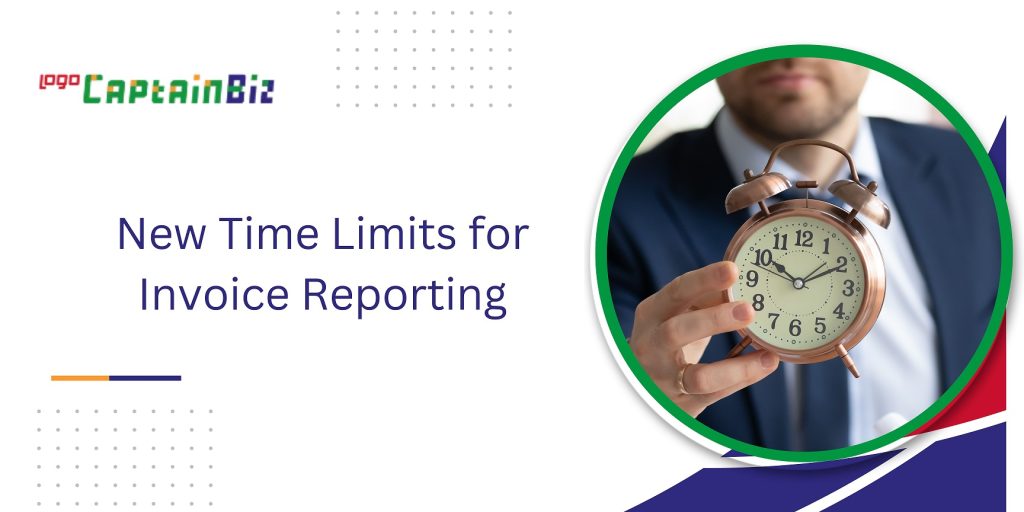In the world of business and finance, maintaining correct records and ensuring compliance with tax regulations is essential, and managing tax obligations is no exception. A tax invoice needs to be carefully created, making sure that all pertinent information is included and the document is correct. Additionally, significant dates and deadlines must be met. There may be fines and legal repercussions if these deadlines are missed. This article explains the important dates for issuing a tax invoice that both people and companies need to remember when sending out tax bills. Comprehending and honouring these deadlines is necessary for an efficient and legal billing procedure.
Important Dates for Issuing a Tax Invoice
Depending on the tax laws in your area, there may be differences in the deadlines for submitting a tax invoice. Here are some standard guidelines, though:
- Date of Supply: This is the most important date of all. The tax invoice must be sent on or before this date in various tax systems. The day when the products or services are delivered to the client or made available to them is the date of supply in most cases.
- Date of Payment: Certain tax authorities permit it to issue invoices on the day of payment before a business receives money before the goods or services are delivered. This might not be applicable to all industries or all legal systems, though.
- Billing Period: In certain circumstances, bills may be sent out on a regular basis, such as a monthly or quarterly basis, particularly for companies that offer continuing services or subscriptions. The transactions that took place throughout the billing period have to be covered by the invoice.
- Tax Period: You may send tax invoices at the conclusion of each tax period to correspond with the tax period if the tax period for your company is different from the calendar month.
- Contractual Agreements: In some situations, a company’s and its customers’ contractual agreements control when invoices are sent. Observe any special instructions contained in these contracts.
- Grace Period: You may issue the tax invoice within the grace period provided by some tax authorities following the date of supply. This is frequently used to enable companies to combine several transactions into one invoice.
To make sure that you are adhering to the accurate invoice issue dates, it is imperative that you review the particular tax rules and instructions supplied by your local tax authority or get advice from a tax specialist. Penalties or tax problems may arise if these deadlines are missed.
New Time Limits for Invoice Reporting

A major reform that the GST Authority has implemented would directly affect taxpayers, particularly those with an Aggregate Annual Turnover (AATO) of at least Rs. 100 crore. With effect from November 1, 2023, taxpayers in this group will have a rigorous 30-day window within which to submit invoices from the invoice date. The purpose of this advise is to shed light on this recent change and the ramifications it has for taxpayers.
- AATO Threshold: Taxpayers having an AATO of 100 crores or more are the focus of the new deadline for filing bills. This implies that companies who make less than this cutoff won’t be impacted by this limitation.
- 30-Day Reporting Window: In accordance with this new regulation, taxpayers who satisfy the AATO requirement are required to record all bills within 30 days of the invoice date, regardless of the type of document. This covers all relevant papers for which Invoice Reference Numbers (IRNs) are created, such as invoices, credit notes, debit notes, and other documents.
- Strict Enforcement: It is important for taxpayers to be aware that this deadline will be carefully adhered to. Practically speaking, an invoice that was issued on November 1, 2023, for example, cannot be reported on November 30, 2023. Penalties and non-compliance concerns may arise if this deadline is not met.
- Date of Implementation: November 1, 2023, is when this new validation will go into effect. As of this date, all invoices and accompanying documentation from taxpayers who match the AATO criteria must be reported within the 30-day term.
Upcoming Important Dates for Issuing Tax Invoice
Here are the upcoming important dates for issuing tax invoices:
| Date | Significance |
| November 7, 2023 | The deadline for depositing taxes deducted or collected in October of 2023 is approaching. Nevertheless, all money that a government office deducts or collects must be credited to the Central Government on the same day that taxes are paid, even if an income tax challan is not produced. |
| November 14, 2023 | Deadline for obtaining a TDS Certificate for taxes deducted under section 194-IA.
Deadline for issuing TDS Certificates for taxes deducted under section 194-IB. Deadline for issuance of the TDS Certificate for taxes deducted under section 194M. Deadline for issuance of the TDS Certificate for taxes deducted under section 194S. |
| November 15, 2023 | Quarterly TDS certificate (regarding tax deducted for payments other than salary) for the quarter ending September 30, 2023, dated November 15, 2023
Date by which a government agency must provide Form 24G if TDS/TCS for October 2023 has been paid without a challan being produced. Deadline for stock exchanges to provide statements in Form No. 3BB regarding transactions where client codes were changed after registration in the system for the month of October 2023 |
| November 30, 2023 | The deadline on which the challan-cum-statement about the tax deducted under section 194-IA must be provided is October 20, 2023.
October 20, 2023, is the deadline for submitting the challan-cum-statement on the tax that was withheld under section 194-IB. October 2023 is the deadline for submitting the challan-cum-statement on the tax that was withheld under section 194M. |
Tax Invoice Issuance Timeline for Small Businesses
To guarantee compliance with tax legislation, small firms usually adhere to a set of dates and criteria when issuing tax invoices. Generally speaking, small companies should base their tax invoices on the date of supply—that is, the day the product or service is delivered to the client or made available to them. To comply with tax regulations, it’s critical to submit the invoice by this date at the latest.
Although this might vary by jurisdiction and company practice, invoices can also be sent on the day of payment, especially if payment is made before goods or services are delivered. You should align invoices with the tax period if your small business runs on a different schedule, such as quarterly or yearly.
Furthermore, small businesses that provide subscription services or recurring services may choose to bill customers for transactions that occurred inside the billing period on a regular basis—for instance, once a month or once every three months. It’s also crucial to adhere to any contractual duties you might have with clients, as these could involve invoicing deadlines.
Tax Invoice Issuance Timeline for Exporters
When deciding whether to send tax invoices, exporters have to consider both the exporting country’s specific tax regulations and international trade laws. Exporters are often required to provide tax invoices based on the date of supply, which is the instant the goods or service is delivered to the customer or made available to them. Since taxes and tariffs for cross-border transactions are determined using this date, it is important for exporters.
In international commerce, it is frequently necessary for invoices to be given as soon as possible, ideally on the day of supply or earlier, as delays might impede customs clearance and cause supply chain interruptions. Exporters should also take into account the contracts they have with their overseas clients, which may include the invoicing requirements.
Conclusion
Tax invoices are sent in an organised manner, so it’s critical for both people and corporations to remember key dates. Missing these dates may result in issues, such as financial and legal consequences. Tax compliance requires knowing when invoices must be issued, how long records must be kept on file, and how important it is to submit accurate reports on time.
In summary, remembering these significant dates and deadlines is essential to smart financial management and goes beyond simple compliance. The seamless operation of transactions, precise financial reporting, and a good conscience in the eyes of the tax authorities are all ensured by meeting these dates.
A well-organised and legally sound financial operation will benefit from your knowledge of these dates and your dedication to fulfilling them, whether you are a small company owner, independent contractor, or employee of a bigger organisation. In order to keep informed about any changes to legislation and GST Tax Invoice issuance deadlines, it is always important to obtain expert counsel or communicate with the appropriate tax authorities, and you can check out CaptainBiz for more information.
Also Listen: CaptainBiz Account Main Sales Invoice Banane ki Process
FAQs
Q1: When ought a tax invoice to be sent out?
At the moment of supply, all registered GST taxpayers are required to provide a tax invoice. In order to claim the input tax credit, a buyer must provide a tax invoice for any products or services they have acquired. A tax invoice is also necessary for a number of different financial reporting needs.
Q2: When ought a GST invoice to be sent out?
Even though it is generally a good idea to issue a GST invoice for any amount, the GST Act, with its regulations, states that when the value of the goods or services provided is less than INR 200, there is no need to issue a tax invoice if: The recipient does not require an invoice; if the recipient requests one, it should be issued
Q3: When does the vendor issue a debit note?
When the buyer’s sum due to the seller rises, the seller issues a debit note if the taxable value of the tax invoice is less than the amount that ought to have been charged. The tax value on the tax invoice is less than what should have been charged.
Q4: What format is required for a tax invoice?
A tax invoice can have any format that is required. Nonetheless, a tax invoice of this kind consists of a few crucial elements. Name, address, and GSTIN of the supplier are the 16 items that must appear on all invoices that companies subject to the GST must issue.
Q5: What distinguishes the due date from the invoice date?
The invoice date is the day the invoice appears in the bill book; the due date is the day the payment is expected in connection with the invoice. The date for filing an invoice under GST Invoice Rule (5) varies according to the products and services, with a few exceptions.

